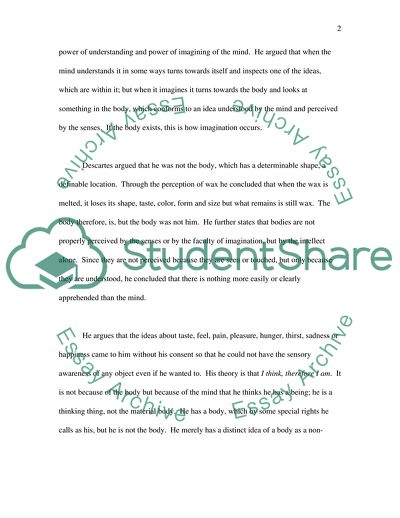Cite this document
(What is Descartes theory of the relation between the mind and body Essay, n.d.)
What is Descartes theory of the relation between the mind and body Essay. https://studentshare.org/psychology/1702975-what-is-descartes-theory-of-the-relation-between-the-mind-and-body-what-are-his-arguements-for-his-theory
What is Descartes theory of the relation between the mind and body Essay. https://studentshare.org/psychology/1702975-what-is-descartes-theory-of-the-relation-between-the-mind-and-body-what-are-his-arguements-for-his-theory
(What Is Descartes Theory of the Relation Between the Mind and Body Essay)
What Is Descartes Theory of the Relation Between the Mind and Body Essay. https://studentshare.org/psychology/1702975-what-is-descartes-theory-of-the-relation-between-the-mind-and-body-what-are-his-arguements-for-his-theory.
What Is Descartes Theory of the Relation Between the Mind and Body Essay. https://studentshare.org/psychology/1702975-what-is-descartes-theory-of-the-relation-between-the-mind-and-body-what-are-his-arguements-for-his-theory.
“What Is Descartes Theory of the Relation Between the Mind and Body Essay”. https://studentshare.org/psychology/1702975-what-is-descartes-theory-of-the-relation-between-the-mind-and-body-what-are-his-arguements-for-his-theory.


